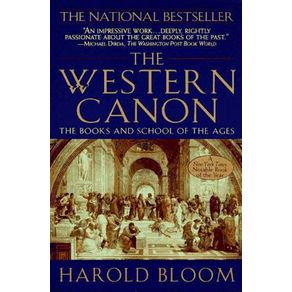Harold Bloom explores our Western literary tradition by concentrating on the works of twenty-six authors central to the Canon. He argues against ideology in literary criticism; he laments the loss of intellectual and aesthetic standards; he deploresmulticulturalism, Marxism, feminism, neoconservatism, Afrocentrism, and the New Historicism. Insisting instead upon "the autonomy of the aesthetic," Bloom places Shakespeare at the center of the Western Canon. Shakespeare has become the touchstone for all writers who come before and after him, whether playwrights poets or storytellers. In the creation of character, Bloom maintains, Shakespeare has no true precursor and has left no one after him untouched. Milton, Samuel Johnson, Goethe, Ibsen, Joyce, and Beckett were all indebted to him; Tolstoy and Freud rebelled against him; and Dante, Wordsworth, Austen, Dickens, Whitman, Dickinson, Proust, the modern Hispanic and Portuguese writers Borges, Neruda, and Pessoa are exquisite examples of how canonical writing is born of an originality fused with tradition. Bloom concludes this provocative, trenchant work with a complete list of essential writers and books - his vision of the Canon.



